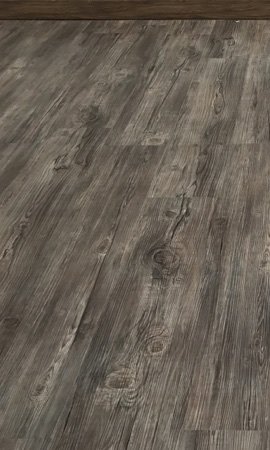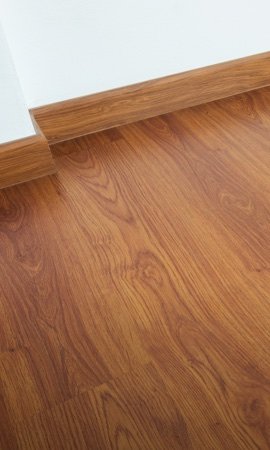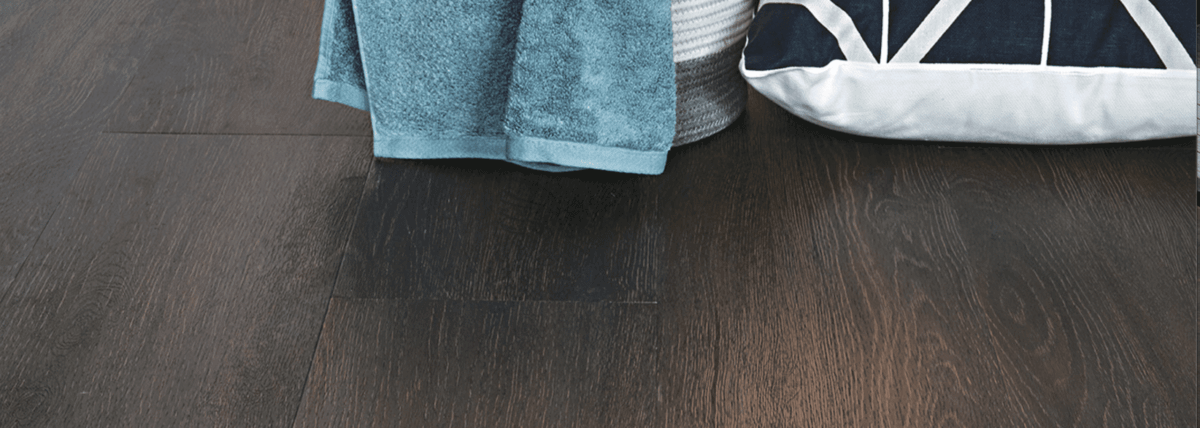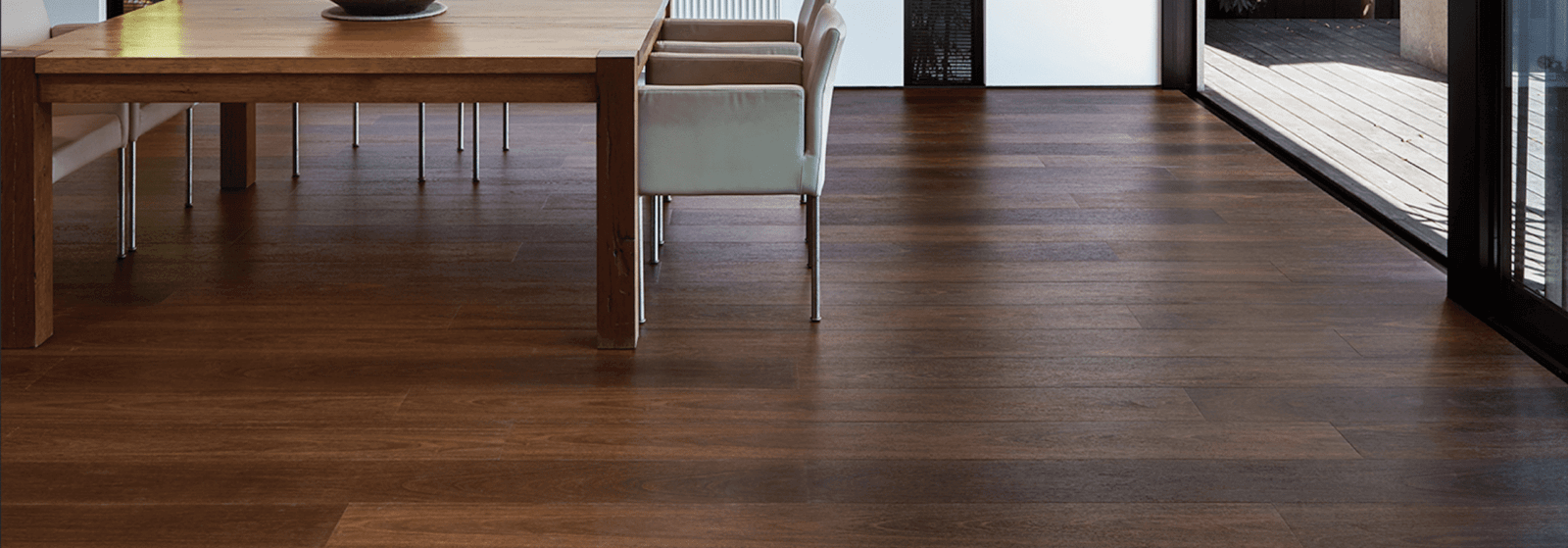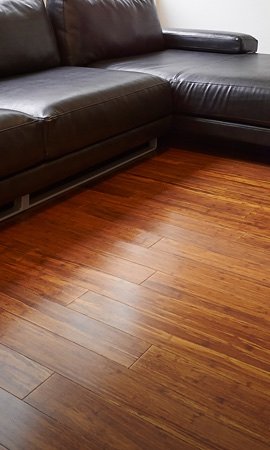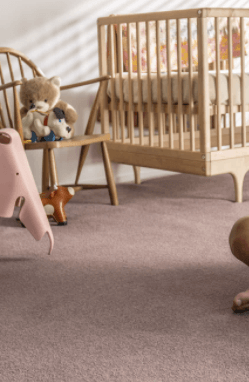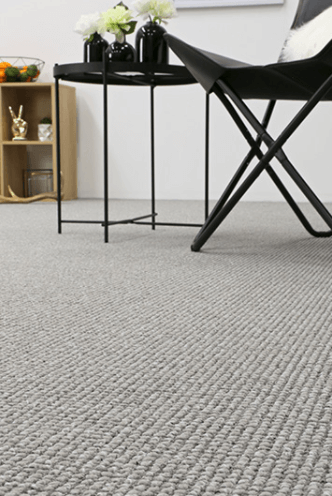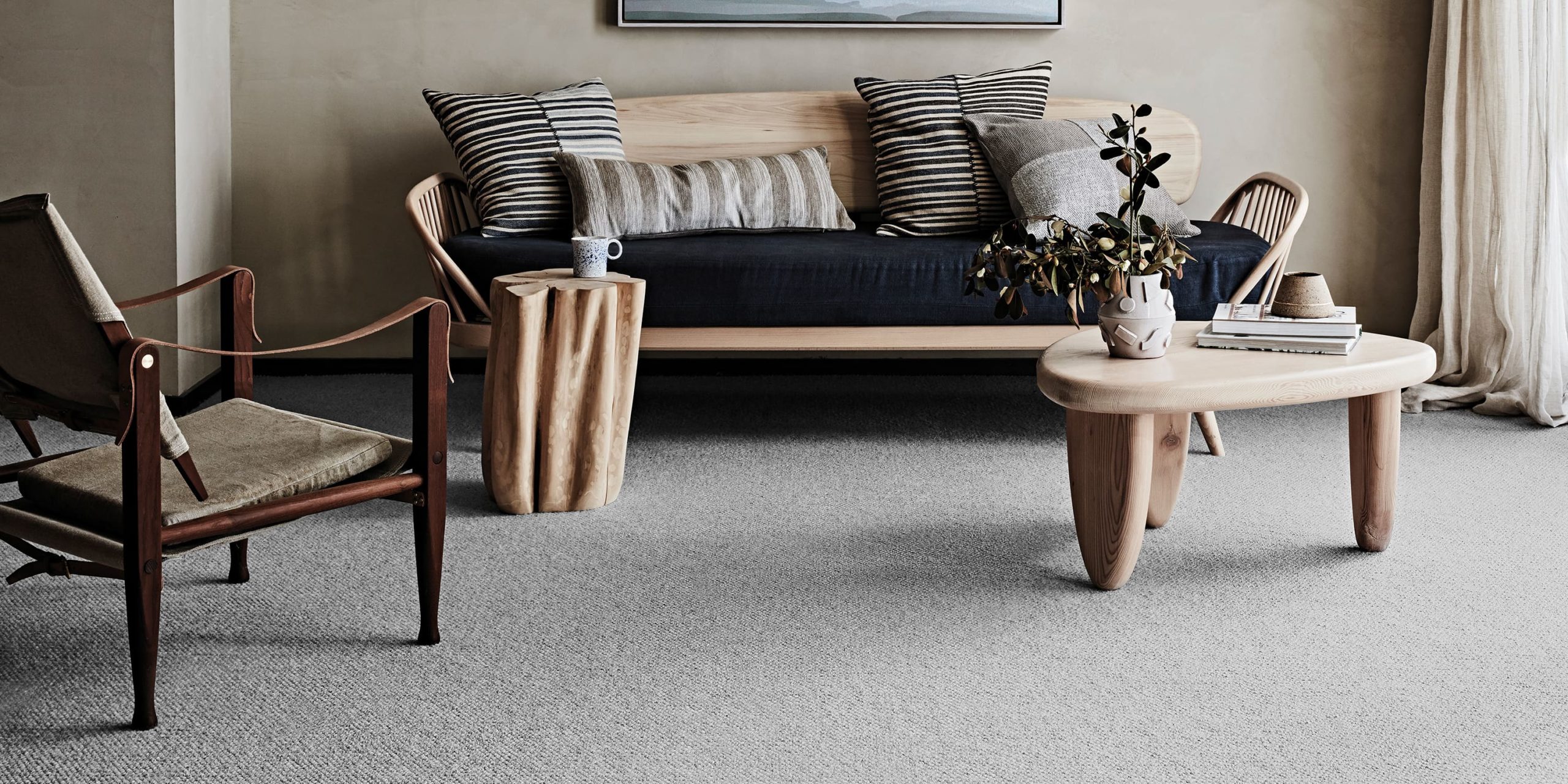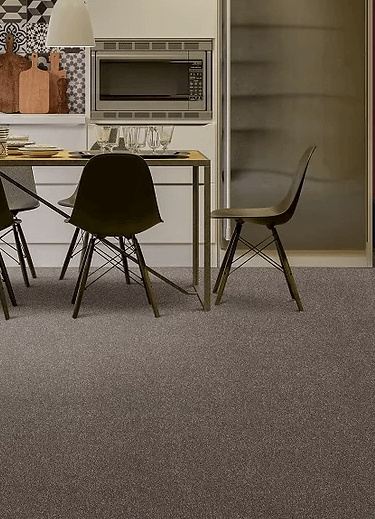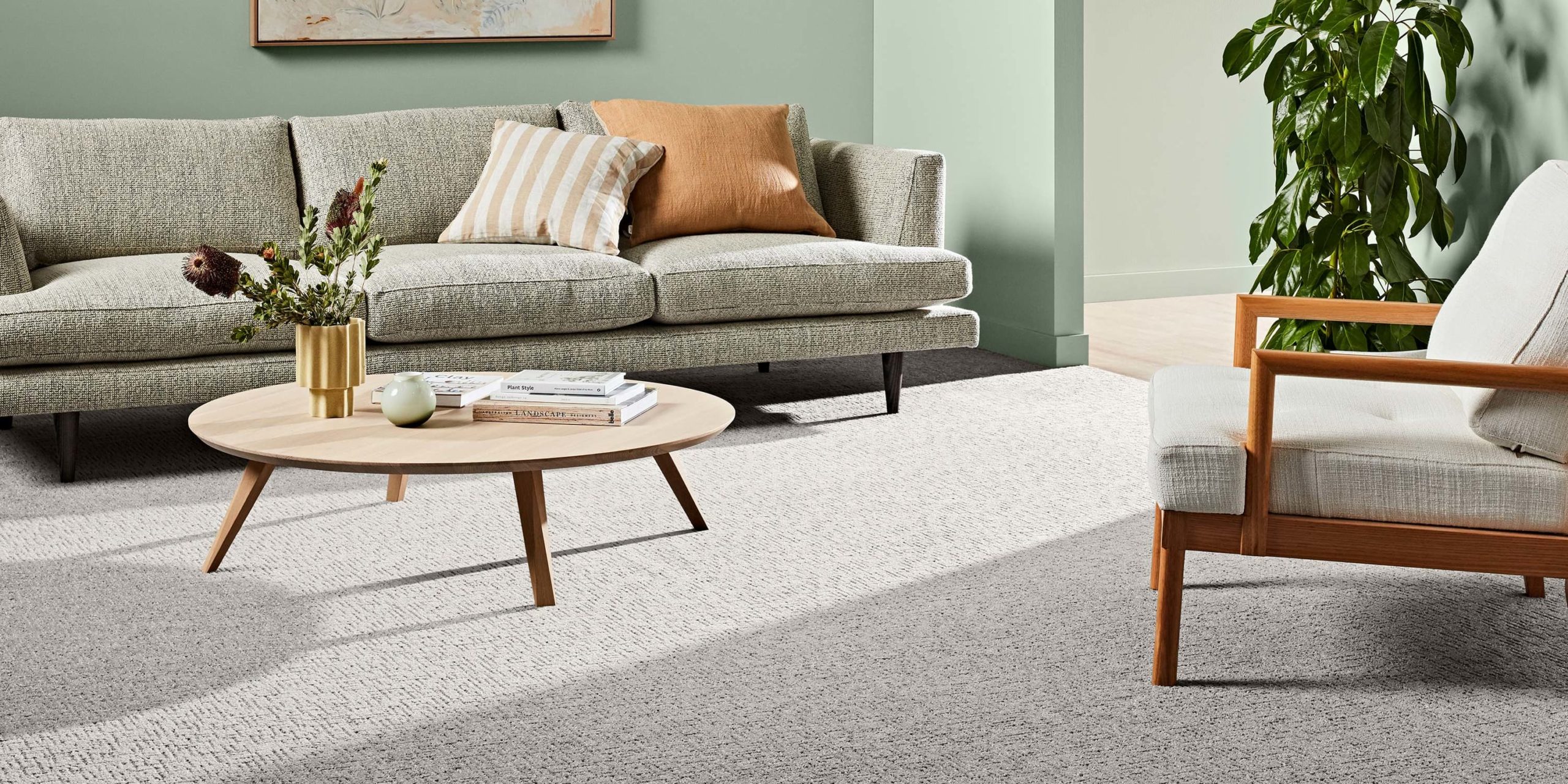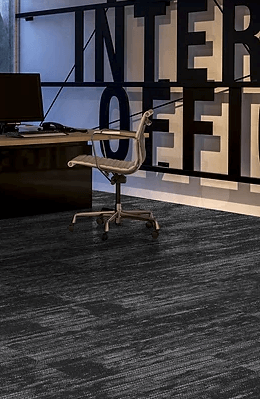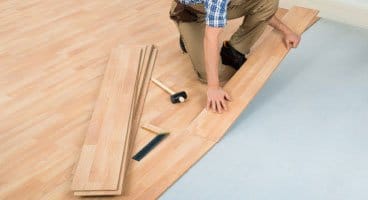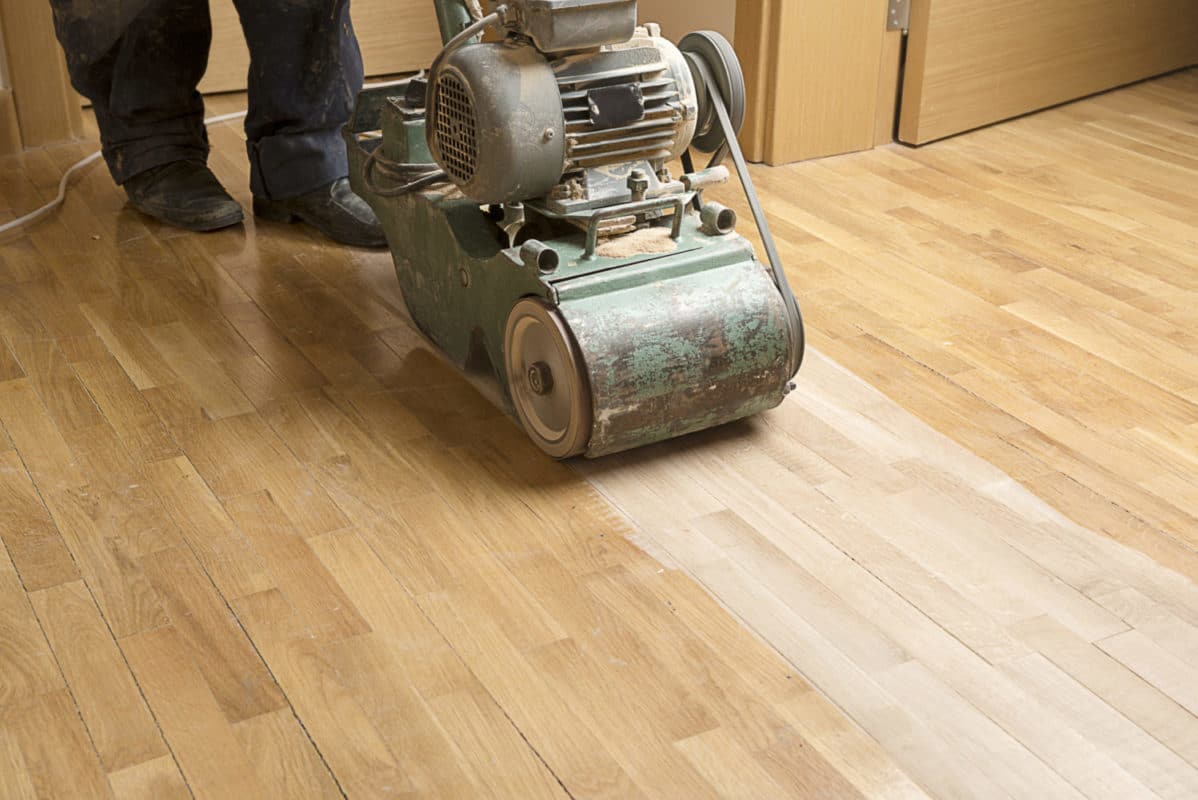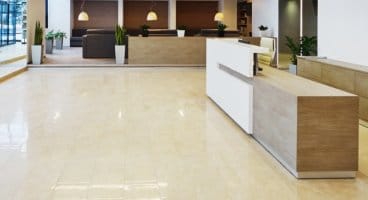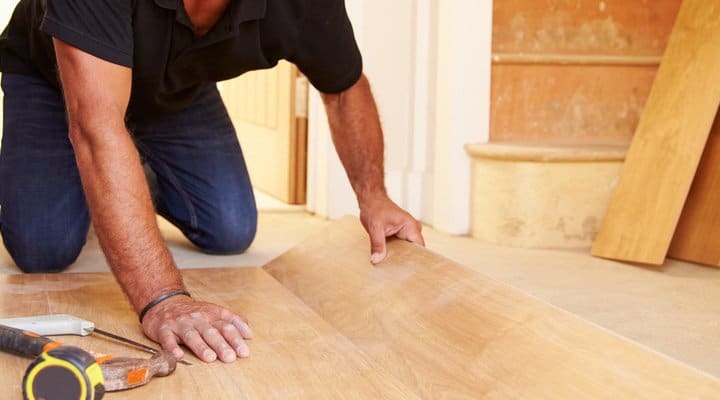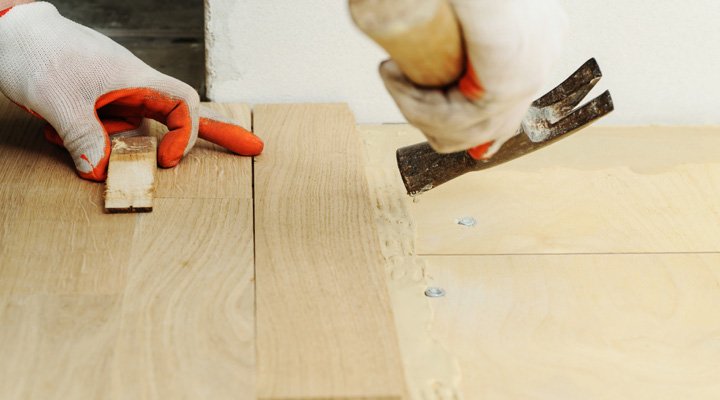

23 Feb Vinyl Flooring vs Laminate Flooring
When you’re looking for a budget-friendly floor, you can’t go wrong with either vinyl or laminate flooring. They’re both solid options that are particularly suitable for high-traffic areas like the living room and hallways.
Despite their similar appearance, however, vinyl and laminate floors are made differently and consequently have different strengths. In this article, we’ll look at these differences so that you can choose the floor that’s better suited for you.
Overview
If you’re in a rush, here’s the run-down of how vinyl and laminate floors compare in these areas:
| Vinyl flooring | Laminate flooring | Winner | |
| Construction | ✓ – sturdy, advanced construction | ✓ – sturdy, advanced construction | Tie |
| Installation and Repairability | ✓ – glue down or loose lay | ✓ – click lock system, easy to install | Laminate |
| Affordability | ✓ – affordable | ✓ – very affordable, generally less costly than Vinyl | Laminate |
| Design | ✓ – a multitude of different colours and styles | ✓ – over 100 colours and styles at FloorVenue | Tie |
| Water Resistance | ✓ – 100% waterproof | ✘ – water resistant, but not waterproof | Vinyl |
| Durability | ✘ – not as durable, can tear under heavy loads | ✓ – very hard and durable | Laminate |
| Comfort | ✓ – soft and springy underfoot due to its materials construction | ✓ – soft and springy underfoot due to its use of underlayment, but also more solid feeling and sounding | Tie |
| Maintenance | ✓ – easier to clean since it’s waterproof | ✘ – a little harder to clean than vinyl floors, although still quite easy | Vinyl |
Construction
Vinyl floors come in three different types:
- Vinyl Plank – also known as luxury vinyl plank or LVP, usually used for residential settings.
- Vinyl Tile – also known as luxury vinyl plank or LVT, used for both residential and commercial settings.
- Vinyl Sheets – these are fully sealed and used primarily for commercial settings.
As their name suggest, the substance of these floors is polyvinyl chloride (PVC) plastic that’s mixed with stabilisers to ensure durability. This PVC ‘core’ is then bonded with a ‘print layer’ that displays the design of the floor, as well as a top protective coat ‘wear layer’ that protects against scratches.
Meanwhile, laminate floors only come in plank form and have a similar construction to vinyl floors. They retain the hard-wearing top coating and print layer but replace the PVC core with HDF particleboard. What does this mean for you? Well, laminate floors are thicker and feel more solid compared to their vinyl floor counterparts. Vinyl floors (especially sheet vinyl) can tear or dent when heavy objects are dragged across them, which is something that laminate floors can generally withstand.
Laminate floors win here due to their solid construction that allows for superior structural rigidity.
Winner: Laminate flooring
Installation and Repairability
We have established in the overview that vinyl flooring installation can come in two forms; ‘glue down’ or ‘loose lay’. Glue down installation means literally to glue the vinyl planks onto the subfloor using polyurethane or water-based adhesives. Loose lay on the other hand means leaving the forces of gravity and friction to hold the planks in place, however the edge planks must be fastened down.
Laminate flooring uses a click-lock system which makes it very easy to install without any adhesives at all, which makes it even easier to install than loose lay vinyl flooring. This means it’s much easier to repair damaged laminate flooring since there is no glue involved.
Winner: Laminate flooring
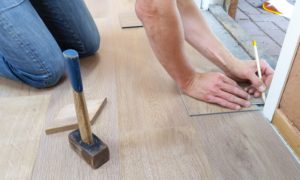

Affordability
In general, vinyl floors cost less than laminate. In NSW (as of 2025), vinyl floors can cost from $30 to $60 per square metre, with vinyl plank costing more than vinyl tile and sheet. Laminate floors can cost from $25 to $70 per square metre, with timber-like designs costing more than other looks. The installation cost of laminate is lower than that of vinyl flooring. Overall the costs to supply or install laminate flooring is lower than that of vinyl flooring.
As with anything relating to price, however, it’s important to note that your mileage may vary. You get what you pay for, and cheaper vinyl and laminate floors might not have the quality and durability you’re looking for. Nevertheless, we believe the winner here is laminate.
Winner: Laminate flooring
Design
Both laminate and vinyl floors use a versatile ‘print layer’, where a design is printed and textured to realistically look like a wide array of surfaces. Like the look of timber but not the price? Laminate and vinyl floors have it! Want a tile, marble or slate look but don’t like how cold and hard the real surfaces are? Laminate or vinyl floors are a great alternative!
The possibilities really are quite endless with laminate and vinyl floors; in fact, FloorVenue alone stocks over 100 designs of laminate alone!
Winner: Tie


Water Resistance
Laminate floors are water-resistant and can hold their own against occasional spills, but they’re not waterproof. Why? The wood fibres in the HDF particleboard used by laminate floors can swell when absorbing water, which can cause creaking and buckling of the floor. While you can get ‘waterproof laminate’ floors that use a waterproof top coating, they’re still not waterproof against moisture that creeps in from underneath the floor and from the joints. As such, we would recommend laminate floors in areas that don’t see too much water, like the living room and bedroom.
However, as vinyl floors are primarily made of an impermeable plastic, they’re completely waterproof! This makes vinyl floors more suitable for high-moisture places like the dining, laundry, and kitchen.
This is one of the largest differences between vinyl and laminate flooring, and vinyl is definitely the winner when it comes to water resistance.
Winner: Vinyl flooring
Durability
A durable floor is one that looks great for years, no matter how much wear it’s subjected to. Laminate and vinyl floors are both very durable and are great for high-traffic environments like the living room.
However, laminate floors are a little more scratch and fade resistant due to their use of harder-wearing substances like aluminium oxide for their top wear layer. They’re also more impact resistant as they use a harder HDF core compared to PVC plastic for vinyl floors. As such, laminate floors win for durability.
Winner: Laminate flooring
Comfort
Both laminate and vinyl floors benefit from the use of underlay, a comfortable foam padding attached to the bottom of the floorboards that cushions your feet and acts as a sound and temperature insulator. Vinyl generally does not require underlay since the material itself is already soft.
Laminate floors are a little more comfortable as the rigid floorboards themselves feel and sound more solid underfoot. This results in a more premium feel that can rival more expensive flooring types like solid timber.
Winner: Laminate flooring


Maintenance
Vinyl and laminate floors are both low-maintenance and easy to clean, requiring occasional sweeping and cleaning with a damp mop to keep them clean. As there aren’t any large gaps or seams between floorboards where grime can accumulate, both flooring types are great for allergy-sufferers. However, vinyl floors are a little easier to clean as they’re waterproof, which means that you don’t have to worry too much about using a mop that’s slightly too wet.
However, you should keep in mind that both vinyl and laminate floors don’t like steam cleaning or harsh cleaners like ammonia, as they can damage the coating that seals the floorboards.
Winner: Vinyl flooring (close)
Conclusion: Is vinyl or laminate flooring better?
As you’d have seen above, vinyl and laminate floors each have their own benefits and drawbacks. Laminate floors are a little more comfortable but aren’t waterproof and have a lower cost. Meanwhile, vinyl flooring is more costly and waterproof (which makes it easier to maintain), but at the expense of comfort and durability.
Ultimately, we think that the winner depends on where you’re planning on installing the floor. For anywhere but high-moisture areas like the kitchen, we would probably recommend laminate flooring over vinyl. No matter what you choose, however, you’ll still get a great-looking floor that’ll last for years to come.


Frequently asked questions
Is vinyl flooring better than laminate?
Vinyl and laminate floors each have their place in the home. Vinyl floors are better for wetter areas like the kitchen as they’re waterproof, something laminate isn’t. Meanwhile, laminate floors are better for other areas as they’re more comfortable and solid underfoot.
How long does vinyl and laminate flooring last?
If properly cared for, vinyl and laminate flooring can last for more than a decade. This is because they use a hard-wearing ‘wear layer’ that protects against scratches, impacts, and fading from the sun.
In fact, most good manufacturers provide a warranty of 25 years or more for their floors, which ensures that you can have peace of mind against having any manufacturer defects for the years to come.
Do vinyl and laminate flooring need underlay?
Laminate does require underlay; vinyl flooring does not.
What are the disadvantages of vinyl flooring?
For one, they’re not as physically durable compared to their laminate and hybrid flooring counterparts and can tear when heavy objects are dragged across them. Vinyl floors also can’t be refinished and don’t last as long as their real timber alternatives like solid timber and engineered timber floors, and can off-gas VOCs (volatile organic compounds) that can irritate.
Is vinyl or laminate flooring cheaper?
In general, vinyl flooring is cheaper than laminate flooring. However, labour installation cost is the other way around. In 2025 in NSW, vinyl floors cost around from $30 to $60/sqm, while laminate floors can cost from $20 to $70/sqm. Labour cost to install laminate flooring is from $20/sqm to $40/sqm; while installation of vinyl is usually $40-$45/sqm. It’s important to keep in mind that you get what you pay for, and cheaper floors may not look as nice or have the same durability as more premium options.
Can you install vinyl planks over laminate?
Generally, we would not recommend installing vinyl planks over laminate, as they’re both floating floor designs that aren’t permanently attached to the floor below. If you don’t remove an existing floating floor before installing a new one, the new floor can look uneven and you won’t get the best look out of it. Improper installation may also void your manufacturer’s warranty.
Is it okay to put laminate flooring in the kitchen?
Laminate flooring can be installed in the kitchen, but it’s important to keep in mind that it’s not waterproof. This means that you need to take extra care to not leave any standing water on a laminate floor, which can cause damage through swelling of its fibreboard core.
Instead of using laminate flooring in the kitchen, we would recommend installing vinyl or hybrid flooring instead. Not only are vinyl and hybrid floors waterproof, but they largely have the same wide range of designs and are quite durable to boot.
